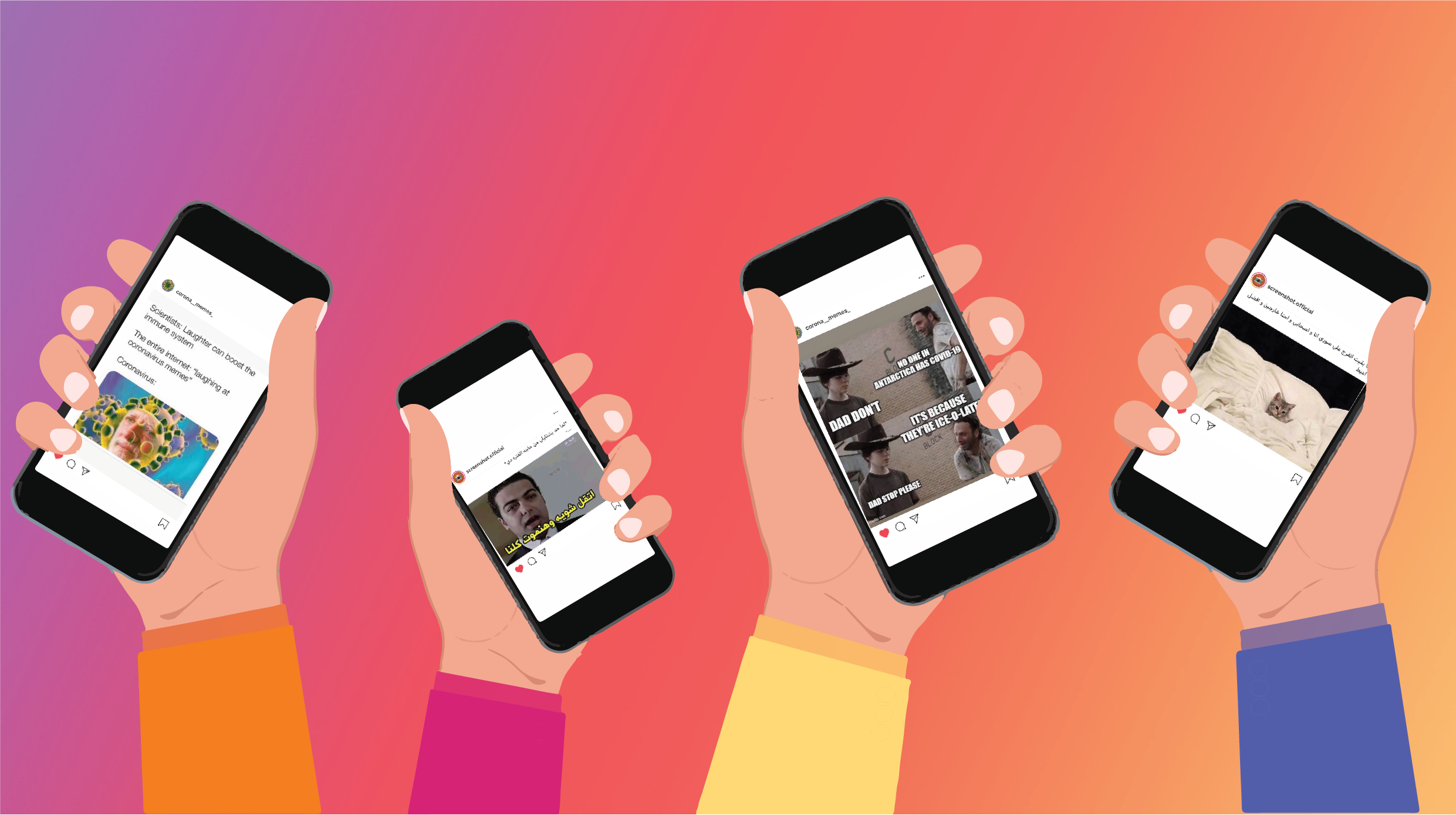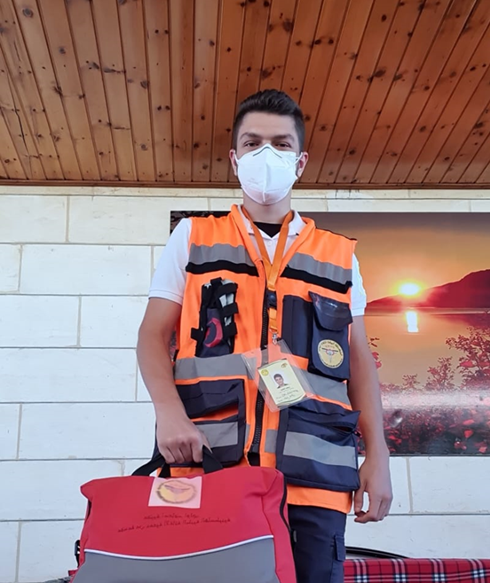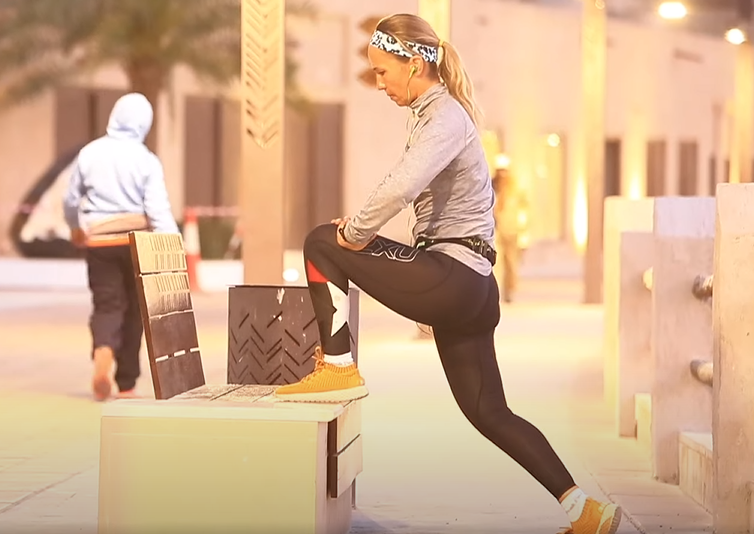Coronavirus: Using Memes as a Coping Mechanism

One wonders how 23-year-old Sayed Abdallah became so popular for creating memes when he was quite busy with his work at the university, the swimming academy, the MMA training, in addition to a job. However, since social distancing measures were imposed due to the outbreak of the COVID-19 disease, he now finds more time for this.
“There is no work, no life, everyone is in a sort of prison, and I can’t help but feel sad,” said Abdallah. “Creating memes is what helps me, and helps many others in these difficult times.”
Abdallah is behind the Instagram meme page “Screenshot.Official,” which has more than one million followers, and is flooding the social media with COVID-19 memes. “I love laughing and making people laugh, and honestly, my Egyptian culture, in general, tends to spin humor out of issues and anxieties to feel better, especially after the revolution” in Egypt, Abdallah said in a video call.
Using humor to cope with a tragedy is not a new phenomenon. As the COVID-19 virus spread across the world and claimed many lives, a number of social media accounts have been creating more virus-related content, seeking to lighten the situation. “The situation is critical, and the danger is real, but due to physical distancing, and due to the fact that we are only connected through Instagram and social media, memes are central to the coping process,” said Abdallah.
Viral memes have poked fun at many aspects of the virus, from hoarding products like toilet paper and food, to working and studying from home. Abdallah, however, believes that some topics should not be made fun of. “One can make fun of almost everything, so it is unacceptable to cross the few red lines, like racism,” he said.
Clinical psychologist Mohammad Fraij also believes that humor and memes are a healthy coping mechanism, as long as they do not cross some red lines. “Patients and specific racial and ethnic groups should not be attacked by memes,” Fraij said in a phone interview. “Misinformation should also be avoided, even in a comic manner, as many people will end up believing and spreading incorrect facts.”
Fraij believes that if memes conform to certain rules, they can be a successful way of processing anxieties and fears, and even help in preventing people from completely breaking down. Humor, in general, has been proven to bring people together, and soothe public panic, he said. “Staying away from tragedies by watching comedy movies, funny shows, and even listening to upbeat and happy music” can be healthy coping mechanisms, he said.
On the other hand, some people believe that making light of such a serious crisis is unacceptable. Zainab Ijaz, 19, sees COVID-19 memes as extremely insensitive. “It is a matter of life or death. Patients around the world are in so much pain,” Ijaz said in a text message. “Mocking the virus, and joking about it is not a solution for those feeling anxious because of it. Instead, people should try meditating or praying.”
Nevertheless, the overall response to Abdallah’s COVID-19 memes has been positive. “There is no way all humans will ever agree on a single thing,” said Abdallah. “Therefore, everyone should be able to deal with the crisis in their own way, produce and follow the content they are comfortable with, and not just flounder in sadness and isolation.”
Edited by: Mais Othman


